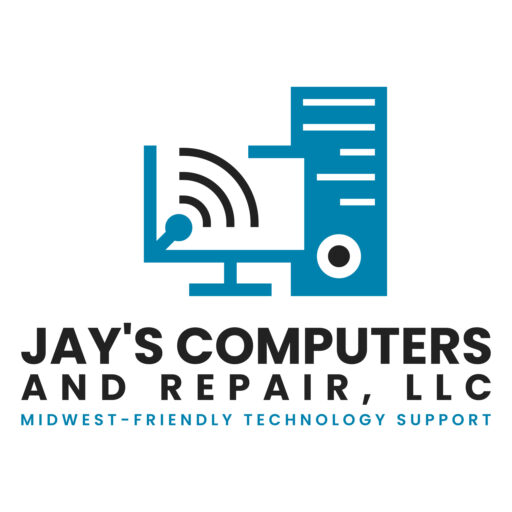Malware and spyware are types of unwanted software that will do anything from slowing your computer down with ads to sending personal information back to someone else’s servers. Ransomware, a particularly nasty variant of malware, will encrypt your files and hold them hostage until you pay for the decryption key, which is usually not cheap. Once paid, there’s no guarantee either that the ransom money will unlock your files.
The reason this software is so prolific is simple: It makes the creators of the malware money. This money is gained through ad revenue, bitcoin or other crypto coin mining, selling your personal information, or adding your computer to a large ‘botnet’, or group of controllable workstations that can be used to launch attacks on websites and spread infections further.
Jay’s Computers and Repair will eliminate malware, spyware, malicious browser extensions, junk applications, and more from your computer to ensure that you stay safe in an online world.
What’s the best way to get rid of malware or spyware?
The easiest, cheapest, and most secure method of eliminating malware or spyware involves a simple backup of the system’s files, wiping the drive, reinstalling the operating system and applications, and restoring the backed-up files. This is generally a two-hour minimum job but it guarantees that the computer is wiped completely clean. Some call it the nuclear option, but in many cases it is the only way to ensure that all traces of malicious software is gone.
Can’t you just, like, you know, uninstall it?
Sure. If malware and spyware were made and designed in the same way that common applications are designed, such as Word or Acrobat, it’s be no thing to run the uninstaller and remove it lickety-split. Unfortunately that strategy flies in the face of the attacker’s intention, making money, and thus malware and spyware are designed to be as tenacious and pernicious as possible.
What can a person do to avoid malware?
- Avoid opening or clicking on emails and links from anyone, including those you know. It’s not uncommon for a friend to get infected with malware that spams emails to contacts in an effort to spread the infection.
- Use an application such as Malwarebytes to prevent infections in real-time.
- Apply those Windows Updates early and often. Patch other software as recommended.
- Have your PC or Mac inspected annually by a qualified computer repair technician. He or she can make certain that your system is up-to-date and secure.
What other things should I be doing?
Backups. Make sure you have a backup of all of your important files and save that backup in a safe, secure place such as a fire-proof safe or at a friend or relative’s house. Use Bitlocker to encrypt the USB flash drive and store the decryption password separately.
You can also use a cloud-based backup service such as Backblaze (note: referral link). I use them for my personal computers at home and I could not be happier with the way it “just works”. For $60/yr./computer your files can be securely backed up to their servers. All of your data are encrypted, and the client is so lightweight and unobtrusive you’ll forget it’s even there.
Also, get in the habit of using a password manager such as Bitwarden or LastPass. Storing your passwords in a password manager keeps them safe, secure, and accessible to those who might need them in the future, such as a spouse or caretaker. Wired has a great article on choosing a password manager best suited for you.
